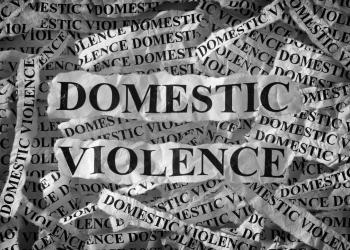
Prior Domestic Violence OK to Admit in New Cases, With No Need for Past Victims in Court
A new decision determines that prior acts of domestic violence can be admitted as predisposition evidence (1109 E.C.) and may be proven by certified court records rather than through the in-court testimony of a victim.
After a heated argument, the defendant and his girlfriend, the victim, were driving in the defendant’s car in Hemet. As the defendant slowed for a stop sign, he pushed the victim out the passenger door. She landed on her head on the side of the road. The defendant sped away, squealing the vehicle’s tires. A good Samaritan found the victim and drove her to a gas station, where law enforcement was called. The victim had a black eye, marks on her neck, cuts on her arms and told police that the defendant had hit her and “she was scared he was going to come back and hurt her.” During a follow-up investigation, the victim told police that the defendant had held her in his bedroom for eight hours while he physically and sexually assaulted her. Medical examination showed she sustained a chest fracture. The defendant was convicted of spousal battery with great bodily injury, with one “strike” conviction, and was sentenced to 14 years in CDC&R.
The main issue on appeal was 1109 E.C. When a defendant is charged with a domestic violence crime, evidence of a past domestic violence offense(s) is admissible to prove propensity to commit the new crime. The defendant had a 2017 domestic violence conviction for crimes against a prior girlfriend. A certified court record of this conviction was introduced as propensity evidence.
The defendant appealed, arguing that the introduction of the court record was not competent evidence. The prosecution did not introduce the live testimony of a prior victim to enter this evidence. The defendant contended that the trial court abused its discretion and failed to conduct a 352 E.C. analysis prior to admitting the evidence. Under 352 E.C., a court in its discretion, may exclude evidence if its probative value is substantially outweighed by the probability that its admission will (a) necessitate undue consumption of time or (b) create substantial danger of undue prejudice, of confusing the issues, or of misleading the jury.





